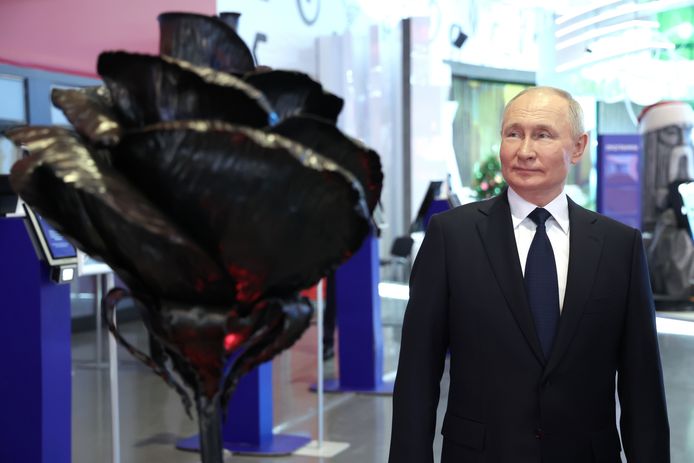The departure of hundreds of Western companies from Russia in response to the Russian invasion of Ukraine has earned President Vladimir Putin at least a billion euros. This is evidenced by the shocking analysis conducted by the New York Times. Companies that want to leave do so on his terms.
The New York Times examined the financial reports of companies that left Russia and found that they had recorded losses of more than 94 billion euros since the beginning of the war.
look. Putin during a conversation in the Kremlin: “Ukraine has no future”
Among other things, they had to pay huge taxes upon their departure, which raised more than a billion euros for the government, the elite and the Russian war chest last year alone.
The departure of Western companies came after a phone call from Ukrainian President Volodymyr Zelensky. This was supposed to harm the Russian economy and undermine the invasion. Things went differently.
elite
Putin forced companies that wanted to sell to do so at low prices or sometimes even seized them. He personally appointed the buyers, usually loyal members of the elite. He also created a special subcommittee to scrutinize all potential sales. It decides whether companies are allowed to leave Russia at all and under what conditions.

This happened, among other things, to the Dutch brewer Heineken. It found a buyer last spring and a price was agreed upon. But the Russian government unilaterally rejected the deal, giving Heineken’s Russian assets for one euro and promising to pay off 92 million euros in debt to the Russian aerosol bottle manufacturer married to a Russian senator.
The result is that an increasing share of Russia’s industry is in the hands of Russian players. The Russian state is an important part of this. Russian state-owned companies acquired the assets of companies such as IKEA, Toyota, and others. In many cases, Putin personally signed the sale.
Carbon copies
The companies they replace are often carbon copies of the original company. For example, when the popular coffee chain Starbucks left, Stars Coffee took its place. The emblem of the mermaid became the Russian Swan Princess. The products themselves are made locally or imported through friendly countries. For example, a supermarket in Moscow can still serve Pepsi by importing it from Uzbekistan.

However, Putin should not declare victory too early. Although he insists that the Russian economy is in good shape despite Western sanctions, the reality appears different. For the above reasons, Russia is avoided internationally for doing business; According to experts, its economy is already under pressure and is at risk of overheating. Even senior Russian officials acknowledge that reduced competition and foreign investment would harm ordinary Russian citizens and the economy in the long term.
In last week’s analysis, our foreign journalist Guy van Vlieren also pointed out that the Russian economy is already heading to hell. Just not fast enough.
analysis. The Russian economy is already going to hell. Not fast enough (+)
Free unlimited access to Showbytes? Which can!
Log in or create an account and never miss a thing from the stars.

“Creator. Award-winning problem solver. Music evangelist. Incurable introvert.”







More Stories
British military spy satellite launched – Business AM
Alarming decline in the Caspian Sea
Lithuania begins construction of military base for German forces